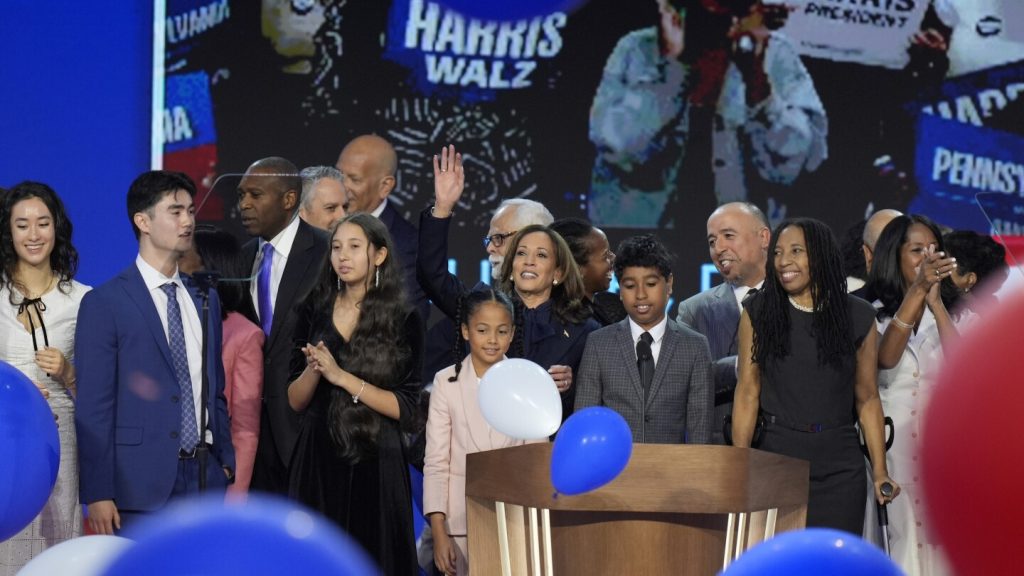Vice President Kamala Harris made history as the first woman of Black and South Asian heritage to be a major party’s presidential nominee. During a speech, she highlighted her multicultural background and upbringing, paying tribute to her roots as the daughter of a brown woman and Caribbean man. The convention showcased her diverse family members and highlighted her personal story as a nod to the changing demographics of the United States, where 12.5% of residents identify as two or more races.
The history of racial inequality in the United States was not far from the minds of attendees at the Chicago convention. Many wore white in homage to the suffrage movement, reflecting on the nation’s dark history of enslavement, segregation, and disenfranchisement. Harris faced criticism from former President Donald Trump, who questioned her Black heritage and suggested she changed her presentation of her racial roots as convenient. The conversation around race remains a central issue in the country.
The convention featured speakers acknowledging Harris’ race and the significance of her nomination as the first Black woman to be a major party’s presidential nominee. Civil rights leader Rev. Al Sharpton compared Harris’ accomplishment to Shirley Chisholm, the first Black woman elected to Congress. Comedian D.L. Hughley pushed back against Trump’s claims about Harris’ racial identity, emphasizing that she has always embraced her African American heritage. The convention was a moment of celebration and recognition of Harris’ groundbreaking achievement.
Harris shared her personal story during the convention, highlighting the influence of her parents and her upbringing in a working-class town in Oakland, California. She emphasized her mother’s resilience and determination to stand up against injustice. The vice president’s ties to her alma mater, Howard University, and her sorority, Alpha Kappa Alpha, were also highlighted. Harris’ South Asian heritage was acknowledged during the roll call as some speakers referenced her middle name, Devi, tying her to her Indian roots.
The convention represented a significant moment for many attendees, including Shannon Nash, a member of the Alpha Kappa Alpha sorority, who traveled from the Bay Area to witness history. The energy and hope surrounding Harris’ nomination were palpable, with attendees reflecting on the importance of the moment for future generations. For some, like delegate Pat Pullar from Georgia, witnessing Harris make history was a deeply meaningful experience, symbolizing progress and the impact of their ancestors’ struggles.
Harris’ nomination as the first Black woman vice president was a milestone in American history, underscoring the progress made in diversity and representation. Her story resonated with many Americans who saw themselves reflected in her multiracial background and achievements. As the country continues to grapple with issues of race and inequality, Harris’ historic nomination serves as a reminder of the ongoing struggle for racial justice and equality. The convention was a moment of celebration and reflection on the progress made and the work that lies ahead.


